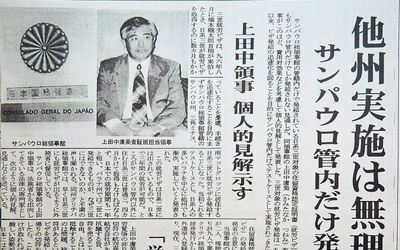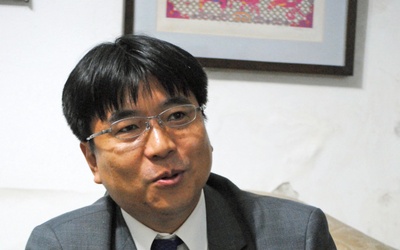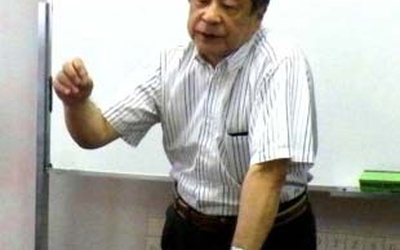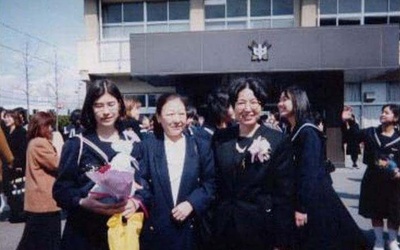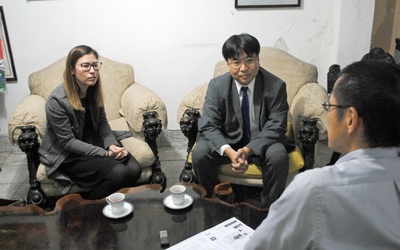Special roundtable discussion: What should the fourth generation visa be like? - As a framework for developing human resources who will lead the future of Japan-Brazil exchange -
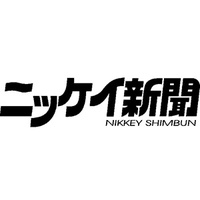
If the fourth-generation visa is a success and fifth and sixth generation Japanese are able to come to Japan to work and learn about Japanese culture, then surely this visa system could be an important system that will determine the future of the Japanese community? Based on this understanding of the problem, we held a roundtable discussion with Fukasawa Masayuki, editor-in-chief of the Nikkei Shimbun, and invited Shimano Patricia, a former dekasegi worker who became a lawyer in Brazil after returning to Brazil, and Nagai Yasuyuki, executive director of the Center for Information and Assistance for Overseas Workers (CIATE), who is at the forefront of dealing with dekasegi issues.
(This roundtable discussion was held in June 2018 and has been revised to reflect changes in circumstances since then. Reprinted from the Nikkei Shimbun .)
Stories from this series
Part 5: Is Level 4 Japanese a requirement for fourth-generation Japanese visas?
Oct. 15, 2018 • Masayuki Fukasawa
Read Part 4 >> [Fukasawa] By the way, are you a third generation Patricia? [Shimano] Yes. There are many fourth-generation Koreans born in Japan. There are also many fourth-generation Koreans living in Japan who have not obtained permanent residence visas. First of all, I think it would be better to value and support such people who are already in Japan. [Fukazawa] What happens to a fourth-generation Japanese-born person who turns 20 and leaves their parents' care? [Nagai] You can just …
Part 4: Fourth-generation immigrant visas as a human resource development system
Oct. 8, 2018 • Masayuki Fukasawa
Read Part 3 >> Are temp agencies the bad guys? [Fukazawa] Based on your experience, do you have any suggestions or comments on how Japan could improve its dekasegi issue or visa system? [Shimano] It's more of a criticism than a suggestion. [Fukasawa] That's great (laughs), that's great. [Shimano] I don't really understand what the purpose of the fourth generation visa is. When I look at the Ministry of Justice website, I see various things said about it being something …
Part 3: Former dekasegi student, Shimano Patricia - Returning to Brazil
Oct. 1, 2018 • Masayuki Fukasawa
Read Part 2 >> Moving to Brazil after the Lehman Shock [Fukazawa] When did you come back to Brazil? [Shimano] That was in 2009, after the Lehman shock. [Fukazawa] I went to Japan when I was 10 years old, in 1995. I stayed in Japan for about 15 years and came back when I was 25. I worked in Japan for quite a while. [Shimano] Yes, from April 2003 to September 2009. [Nagai] Did you do anything other than 3M? …
Part 2: Former dekasegi worker's daughter, Patricia Shimano - High school admission and the sudden death of her mother
Sept. 24, 2018 • Masayuki Fukasawa
Read Part 1 >> Meeting a wonderful teacher opened the door [Fukasawa] Did you go to high school in Japan as well? [Shimano] Yes. I was able to go thanks to my English teacher. I was the first foreigner to attend a public high school in Okazaki City. My mother died suddenly when I was in my second year of high school. [Fukasawa] So you really wanted to go on to high school and that's why you went there? [Shimano] …
Part 1: Former dekasegi worker, Patricia Shimano - She came to Japan with her mother at age 10
Sept. 17, 2018 • Masayuki Fukasawa
If the fourth-generation visa is a success and fifth and sixth generation Japanese are able to come to Japan to work and learn about Japanese culture, then surely this visa system could be an important system that will determine the future of the Japanese community? Based on this understanding of the problem, we held a roundtable discussion with Fukasawa Masayuki, editor-in-chief of the Nikkei Shimbun, and invited Shimano Patricia, a former dekasegi worker who became a lawyer in Brazil after …

